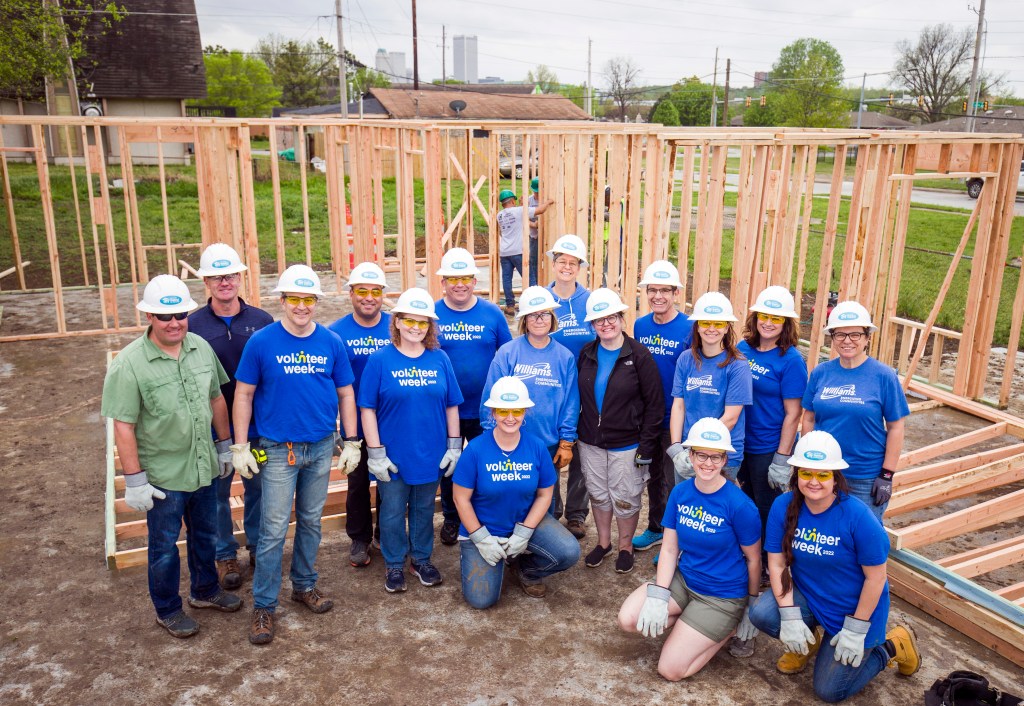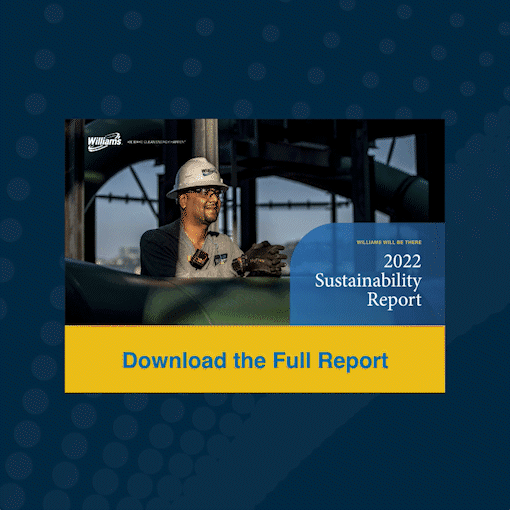When Williams expands our major pipelines or facilities, we support economic development through state and local tax revenues, labor compensation, income tax revenue and local spending by our workers. In 2022, we paid $215 million in property taxes across our locations. Over the past five years, we have also paid more than $231 million in total Employer Federal Insurance Contribution Act taxes. Our investments also contribute to state and local sales tax revenues when we procure project materials, and our workers patronize local businesses.
It is important to understand the potential economic impact of a project before initiation so that we can strategically target investments to maximize benefit and disperse positive impact equitably. Williams assesses anticipated economic impact of our operations and expansion projects at the local community and regional level. We engage an expert third party, typically a research university or institute, to conduct economic impact assessments for large expansion projects. Involving experts heightens research quality, impartiality and accuracy, which is important for communicating results to local stakeholders. Following the analysis, we share information about anticipated benefits with local policymakers, advocacy organizations, chambers of commerce and other community stakeholders. Once projects begin, we promote the use of local businesses, such as patronizing locally owned hotels, restaurants, fuel stations, construction suppliers and other local services. For more information, please refer to the Environmental Justice section of this report.

Our proposed Southeast Energy Connector in Alabama expands our Transco pipeline, which extends from Texas to New York City, and will support the transition of Alabama’s electric power generation from coal to natural gas. We have a proven record of reliably servicing this region; Transco has transported approximately 25% of the natural gas that has entered Alabama since 1990. In 2022, we commissioned an economic impact assessment for the Southeast Energy Connector project from the University of Alabama. The study determined that the construction phase alone will generate $97.5 million in gross business activity. The project is expected to generate nearly 300 total jobs and $2.3 million in state and local tax revenues. At the county level, the Southeast Energy Connector is projected to generate $12.4 million in GDP contributions for Chilton County and $22.7 million for Coosa County. Ultimately, the Southeast Energy Connector will drive Alabama’s transition away from coal-fired power generation, which will also benefit communities by reducing air pollution and GHG emissions.
Williams also commissioned studies from Wilkes University and Rutgers University to assess Pennsylvania- and New Jersey-specific economic impact, respectively, for our Regional Energy Access Expansion project. For details regarding the outcomes of these studies, please refer to Williams’ 2021 Sustainability Report.
WILLIAMS WILL BE THERE
Showing Up in Our Communities
In April 2022, hundreds of Williams employees in 18 states volunteered at 88 non-profit organizations as part of our inaugural Williams Volunteer Week, to help with projects such as beautifying outdoor spaces, tutoring in elementary school classrooms and sorting donations at food banks. Our inaugural Volunteer Week harnessed the collective power of Williams employees to complete large projects for vital community organizations. Our community partners shared that our employees have positive attitudes, are industrious and have fun making a difference. Throughout the week, teams volunteered at organizations including Green Country Habitat for Humanity in Tulsa, Oklahoma, Urban Harvest community garden in Houston, Texas, the YWCA of Salt Lake City, Utah, Child Hunger Outreach Partners in Pennsylvania and many more organizations throughout the country. Our inaugural Volunteer Week proves that Williams employees will truly be there for our communities.


